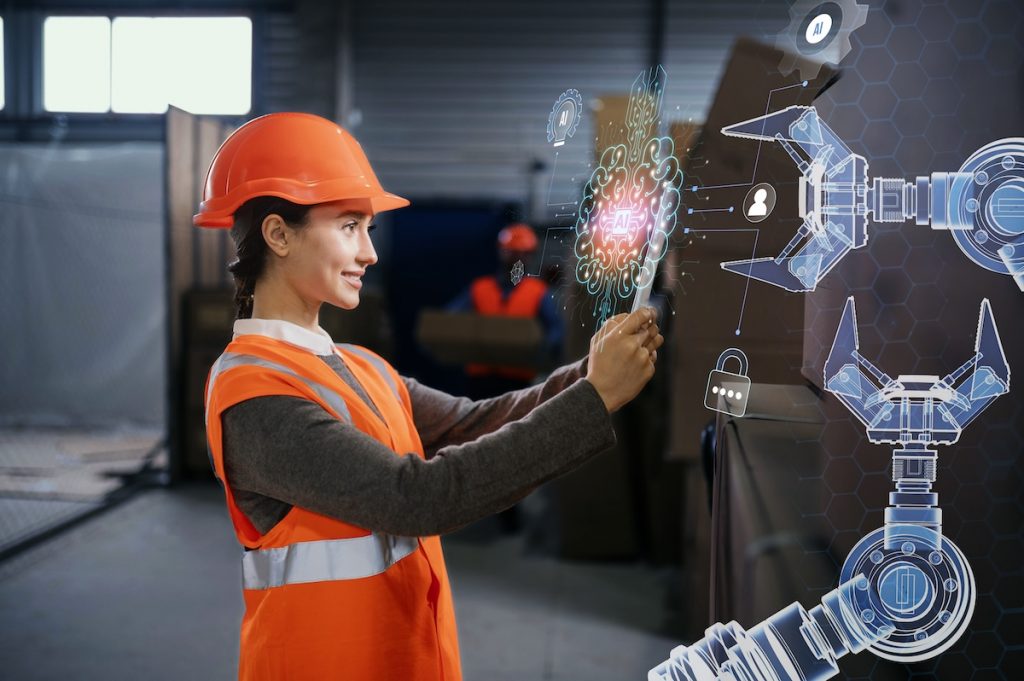Three Essential Uses of Generative AI in Manufacturing
Generative AI is transforming the manufacturing industry by offering innovative solutions to enhance efficiency, improve product design, and optimize processes. Let’s explore three specific ways generative AI can be applied to jobs in manufacturing, providing concrete examples for each.
1. Enhancing Product Design and Innovation
Generative AI significantly impacts product design by automating the creation of new designs and optimizing existing ones. This technology helps engineers develop innovative products faster and more efficiently.
Generative AI can assist in creating multiple design iterations for a new automotive part. By inputting parameters such as material strength, weight, and cost, the AI generates various design alternatives that meet these criteria. Engineers can then evaluate these designs and select the most promising ones. This approach accelerates the design process and leads to innovative and optimized components that traditional methods might not achieve.
Eric Thompson, Director of IoT and AI Solutions at IRISS highlights that generative AI opens up new frontiers in problem-solving by generating new product designs and optimizing existing ones. This technology leverages machine learning algorithms to create designs that balance multiple factors, leading to more efficient and effective products.
2. Optimizing Manufacturing Processes
Generative AI can simulate and optimize manufacturing processes, helping manufacturers identify the most efficient workflows, minimize waste, and improve overall productivity.
In a manufacturing plant, generative AI can simulate various production scenarios to determine the most efficient workflow. By analyzing different assembly sequences and machine configurations, the AI can identify the optimal setup that maximizes efficiency and minimizes errors. This leads to reduced production times and lower defect rates, ultimately saving costs and improving product quality.
Manpreet Singh, CTO of Nano Precise Sci Corp, explains that generative AI can simulate process scenarios, which traditionally have been challenging to model. By varying process parameters, AI can identify the most efficient ways to run manufacturing operations, improving efficiency and reducing energy consumption.
3. Facilitating Predictive Maintenance
Predictive maintenance is crucial for minimizing downtime and extending the lifespan of manufacturing equipment. Generative AI enhances predictive maintenance by analyzing sensor data from machinery to predict potential failures before they occur.
A chemical manufacturing plant integrates generative AI to monitor its complex machinery. The AI analyzes real-time data from sensors embedded in the equipment and predicts when components are likely to fail. Maintenance teams receive alerts and can perform preemptive maintenance, avoiding costly unplanned downtimes. This proactive approach ensures continuous operation and extends the lifespan of the machinery, ultimately boosting the plant’s overall efficiency.
Generative AI can analyze machine signals to detect anomalies and predict failures. This technology not only helps in maintaining equipment but also in optimizing energy consumption by identifying inefficiencies and suggesting corrective actions.
By integrating generative AI into various roles within the manufacturing sector, companies can unlock new efficiencies and innovations that were previously unattainable. Embracing generative AI can help manufacturers stay ahead in a rapidly changing industry and achieve new levels of operational excellence.
For more insights, watch the on-demand session “From Imagination to Implementation: Generative AI’s Revolutionary Role in Manufacturing” that was part of the IIoT World Days online event in May.
This article was generated using ChatGPT based on the session’s video transcript. The content reflects the insights and discussions from industry experts as they explore the transformative applications of Generative AI in manufacturing. The transcript provided the foundational information, which was then structured and elaborated upon by ChatGPT to create a comprehensive and informative article for manufacturers. It was verified and edited by IIoT World’s team.
